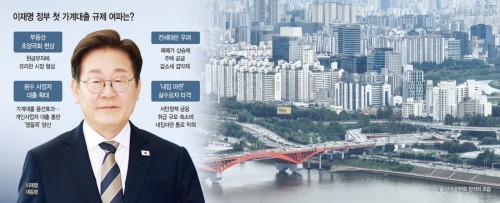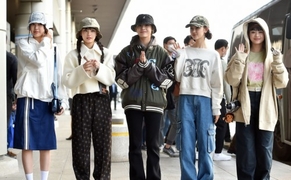 |
The Lee Jae-myung administration’s sweeping new mortgage regulations have sparked concerns of worsening polarization in South Korea’s real estate market, with critics warning that the changes may primarily benefit cash-rich buyers and shut out ordinary home seekers.
Under the new measures, home mortgage loans will be capped at 600 million won regardless of income, and multi-homeowners in regulated areas will be banned from taking out loans to buy additional properties. First-time buyers and low-income borrowers will also be affected, as the government plans to reduce the size of affordable housing loan programs such as the Didimdol and Bogeumjari loans by up to 100 million won.
Financial industry sources said on June 29 that these unprecedented loan caps—announced on June 27—are likely to accelerate an ongoing trend of "super-polarization," where only wealthy individuals with cash on hand can afford prime real estate.
Critics warn that these new rules will lead to a "cash-only league" in the housing market. “Without cash on hand, it will now be nearly impossible to purchase a core apartment,” said Yang Ji-young, a real estate analyst at Shinhan Premier Pathfinder. “This will inevitably intensify the wealth divide.”
The reforms are also raising alarms about a resurgence of high-risk lending and so-called “panic buying” through business or unsecured loans, echoing trends seen during the Moon Jae-in administration. When access to first-tier bank loans was tightened in the past, many buyers turned to personal business loans to finance home purchases.
Yang noted, “Because stress rates now apply even to unsecured loans, we’re likely to see a spike in personal business lending.”
The new restrictions also shrink the availability of policy-based financing for low- and middle-income buyers. The government plans to reduce Didimdol loan limits by 20% per category, capping the maximum at 100 million won, and cut the Bogeumjari loan limits for jeonse rentals by 40 to 60 million won.
Observers warn that this abrupt tightening of loan rules leaves little time for homebuyers to adjust, further limiting access to homeownership for real demand buyers.
Rental supply could also take a hit. With the new rules mandating that homeowners actually live in the properties they purchase, fewer homes may be available for jeonse (long-term deposit leases). This could reduce rental inventory, raise jeonse prices, and drive more landlords to switch to monthly rent.
Ham Young-jin, head of Woori Bank’s Real Estate Research Lab, said, “We're likely to see a shortage of rental homes, rising jeonse prices, and a shift toward monthly leases. This could drive up demand for homes in certain regions from buyers seeking stability.”
While the financial sector expects a short-term cooling effect on speculative purchases—particularly for high-end properties—demand is forecast to surge in outer Seoul areas. Neighborhoods like Nowon, Dobong, Gangbuk (collectively known as “No-Do-Gang”), and Geumcheon, Gwanak, Guro (“Geum-Gwan-Gu”) are likely to see home prices rise due to displaced demand.
Kim Sang-bong, an economics professor at Hansung University, said, “These are strong measures that may help cool down home prices. However, we’ll also see a balloon effect where wealthy buyers continue to dominate high-end areas, while demand shifts to outer districts, pushing up prices there.”
Most Read
-
1
-
2
-
3
-
4
-
5
-
6
-
7





















